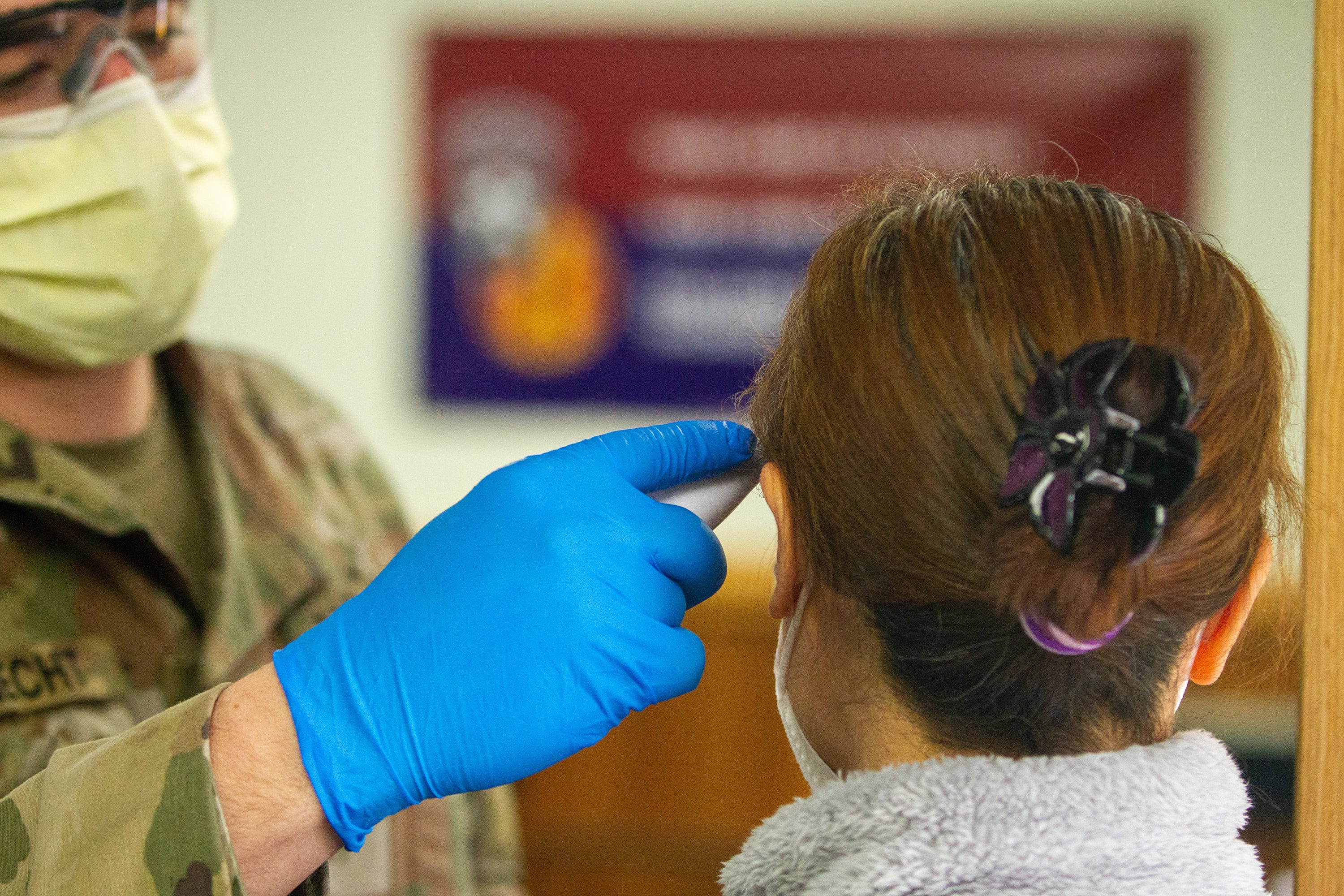The coronavirus is throwing a wrench into American plans to exits its longest war serving as a potential spoiler for peace.
The New York Times reported that quarantine procedures implemented to halt the spread of COVID-19 are impacting efforts that could potentially slow a draw down of forces over the next several months.
A U.S.-Taliban deal inked Feb. 29 in Doha, Qatar, calls for U.S. troop levels to reduce to 8,600 by mid-July and complete a full withdrawal within 14-months.
But some troops entering and exiting Afghanistan airfields are undergoing a14-day quarantine period, according to the New York Times.
Resolute Support said in a news release that it “is making the necessary adjustments to temporarily pause personnel movement into theater," and that adopted screening guidelines from the World Health Organization “will necessitate some servicemembers remaining beyond their scheduled departure dates.”
Roughly 1,500 personnel, troops and contractors arriving in Afghanistan within the last week are living in screening facilities to help stop the spread of the virus, according to the release.
“These servicemembers are living in screening facilities out of an abundance of caution, not because they are sick,” the release reads.
“Protecting the force is our top priority,” Army Col. Sonny Leggett, a spokesman for U.S. Forces Afghanistan tweeted Thursday.
Leggett said USFOR-A was working with the Defense Department and U.S. Central Command to reduce the risk of COVID-19 to deployed personnel in Afghanistan “including screening and testing protocols."
“We continue to execute the ordered draw down to 8,600,” he said.
Military Times has confirmed from four U.S. sources on the ground in Afghanistan that there are 14-day quarantine periods imposed at Bagram Air Base and Kandahar Airfield.
The German military detailed in a news release that its forces would undergo a 14-day quarantine before the start of operations in Afghanistan.
A U.S. military official told Military Times that the preventative screenings are for inbound personnel to Afghanistan. The official said that inbound screening was being shifted to troop-contributing nations, who will hold and screen before approving entry.
Two U.S. sources told Military Times that access to testing kits is complicating efforts.
RELATED

But the Pentagon pushed back in mid-March during a press briefing on the criticisms that there was a lack of COVID-19 testing kits in Afghanistan.
“I’m not aware of any lack of tests; I believe there’s been some concern about the fact that the equipment to run the test, that specific machine, is not in Afghanistan and that’s true,” Joint Staff Surgeon Air Force Brig. Gen. Paul Friedrichs said during the Pentagon briefing in March.
“We have now 13 labs that are up and running with that machine around the world. The closest one to Afghanistan that’s a military lab is our lab in Germany. That doesn’t mean that they’re not getting tested. I mean, we’re doing the swabs. We’re just not running the test itself in Afghanistan,” Friedrichs said.
Lawmakers expressed concern in March that the military may not have an adequate supply of coronavirus testing kits at military installations deployed overseas, especially in the CENTCOM area of operations.
Rep. Mark Pocan, a Wisconsin Democrat, released a statement following a lack of a response from the Army regarding whether the military had sufficient coronavirus testing kits.
In a letter to defense officials, Sen. Tammy Baldwin, a Wisconsin Democrat, addressed concerns that deployed members of Wisconsin’s Army National Guard to Afghanistan were operating in areas believed to have confirmed cases of COVID-19 and that the unit may not have access to testing kits.
In a statement, Pocan said his office was contacted about a military base near the Iranian border where personnel had flu symptoms but did not test positive for the flew. Pocan’s office said the base was about 5 miles from an Afghan town known to have a handful of coronavirus cases.
Resolute Support detailed in the release that it has taken other actions to stem the spread of the virus to include more video teleconferencing and limiting installation access to mission-essential personnel.
While COVID-19 continues to complicate war and peace efforts in Afghanistan, Afghan and Taliban leaders continue to wrangle over a prisoner exchange that could upend the entire deal.
In it’s Feb. 29 deal with the Taliban, the U.S. agreed to facilitate the exchange of 5,000 Taliban prisoners held by the Afghan government for 1,000 Afghan forces and personnel detained by the Taliban.
That exchange was expected to go down by March 10, the expected start date of intra-Afghan negotiations.
“The United States would like to see prisoner releases begin as soon as possible in line with the U.S.-Taliban agreement. No prisoners have been released to date despite the commitment to do so expressed by both sides,” Zalmay Khalilzad, the U.S. envoy leading American peace efforts in Afghanistan tweeted Thursday.
“Coronavirus makes prisoner releases urgent; time is of the essence,” he tweeted.
Khalilzad said the two sides could discuss the prisoner swap over virtual engagements due to COVID-19.
Shawn Snow is the senior reporter for Marine Corps Times and a Marine Corps veteran.





